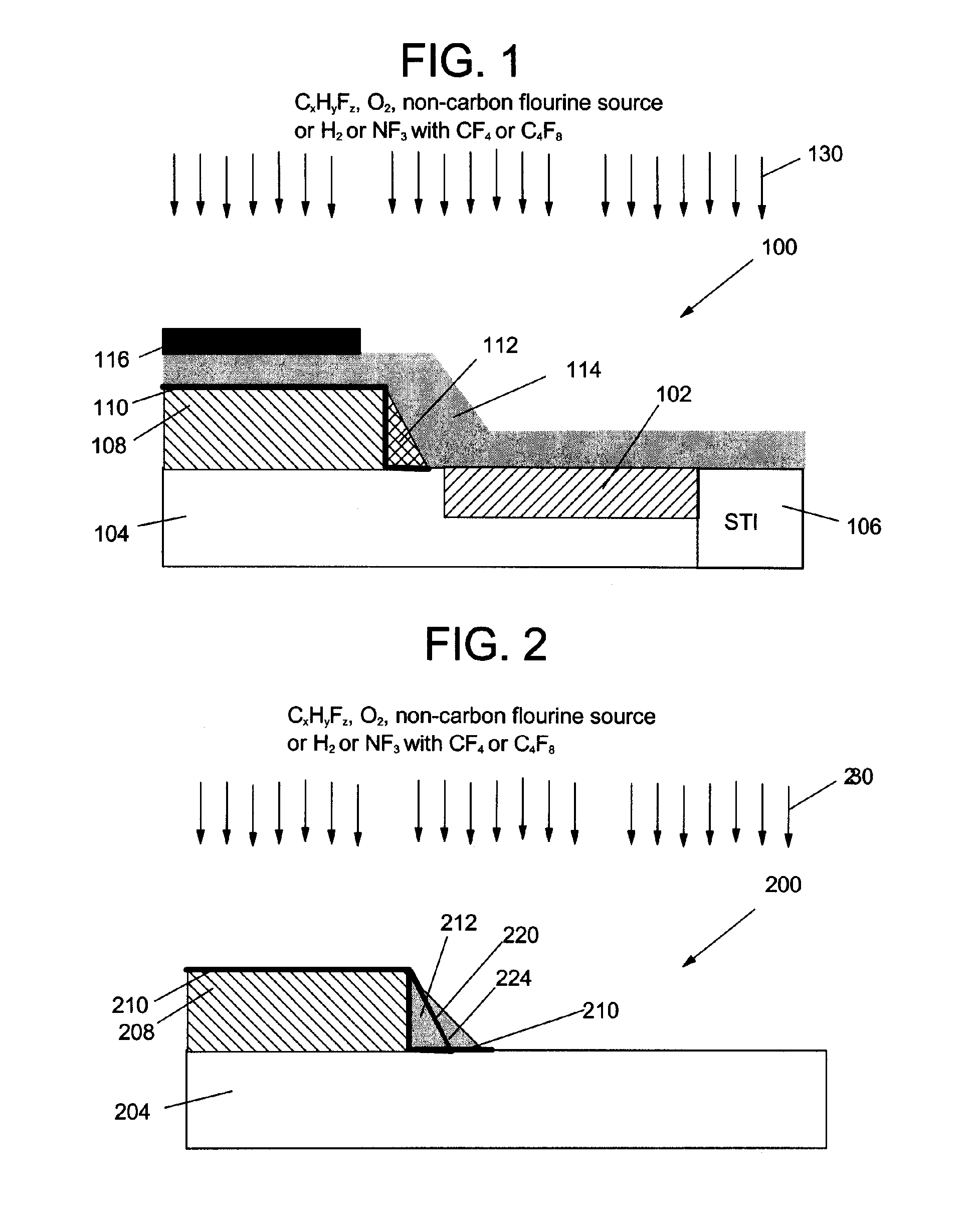Silicon nitride etching methods
a silicon nitride and etching technology, applied in the field of etching methods, can solve the problems of limited etching, undesirable higher sheet resistance, and increasing challenges in etching of silicon nitride materials
- Summary
- Abstract
- Description
- Claims
- Application Information
AI Technical Summary
Benefits of technology
Problems solved by technology
Method used
Image
Examples
Embodiment Construction
[0016]With reference to the accompanying drawings, FIGS. 1-2 show two illustrative structures for describing the methods of etching a substrate having a silicon nitride material according to the invention. It should be recognized that application of the invention is not limited to these particular structures.
[0017]FIG. 1 shows a structure 100 in the form of a silicon nitride liner scheme in which a silicide portion 102, e.g., cobalt silicide, tungsten silicide, nickel silicide, etc., is provided in a substrate 104 adjacent a shallow trench isolation (STI) 106. A gate 108 is provided on substrate 104 and includes a silicon dioxide (SiO2) protective layer 110 and a spacer 112. A liner 114 including silicon nitride material is laid over gate 108. A silicon dioxide mask 116 overlays portions of structure 100 for etching of silicon nitride liner 114. In FIG. 1, silicon nitride liner 114 is to be stripped, where exposed by mask 116. FIG. 2 shows a structure 200 in the form of a triple spa...
PUM
| Property | Measurement | Unit |
|---|---|---|
| bias voltage | aaaaa | aaaaa |
| bias voltage | aaaaa | aaaaa |
| bias voltage | aaaaa | aaaaa |
Abstract
Description
Claims
Application Information
 Login to View More
Login to View More - R&D
- Intellectual Property
- Life Sciences
- Materials
- Tech Scout
- Unparalleled Data Quality
- Higher Quality Content
- 60% Fewer Hallucinations
Browse by: Latest US Patents, China's latest patents, Technical Efficacy Thesaurus, Application Domain, Technology Topic, Popular Technical Reports.
© 2025 PatSnap. All rights reserved.Legal|Privacy policy|Modern Slavery Act Transparency Statement|Sitemap|About US| Contact US: help@patsnap.com


